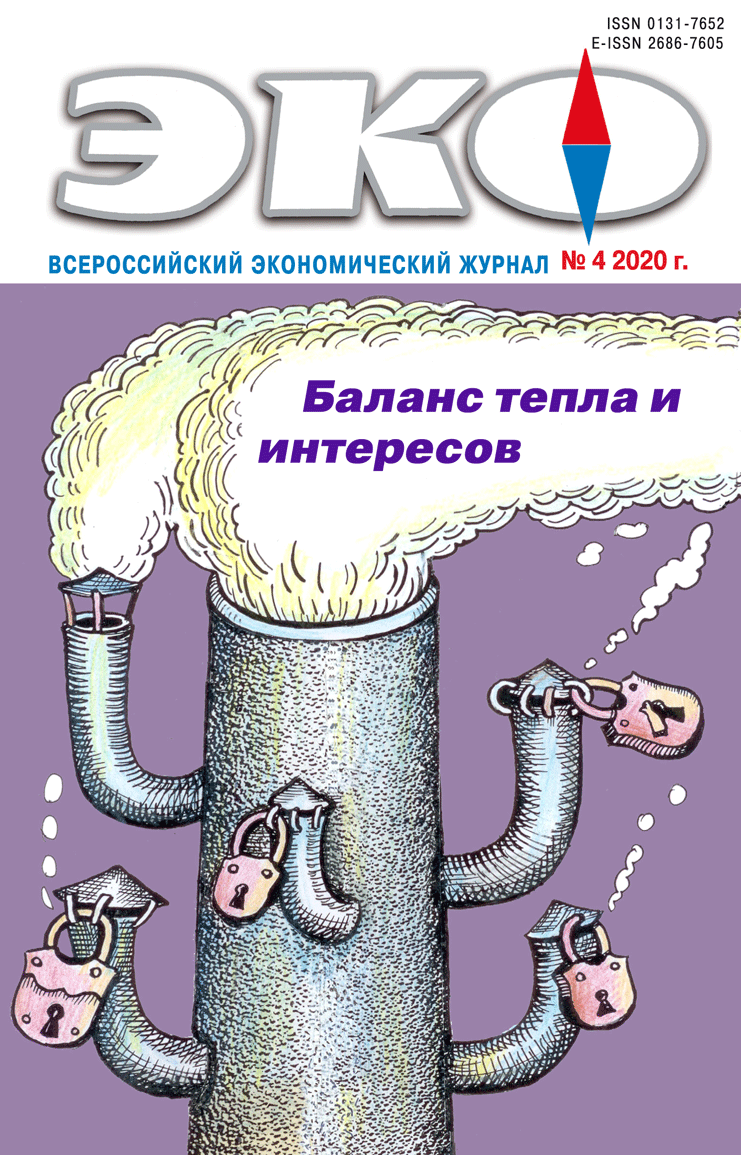ECONOMIC SOCIOLOGY AND DEMOGRAPHY
Published 2020-04-04
Keywords
- trust,
- school education,
- forms of school education,
- full-time education,
- family education
- distance learning ...More
How to Cite
1.
Donskih О, Mikidenko Н. Alternative Forms of Education in the Context of Trusting the School. ECO [Internet]. 2020 Apr. 4 [cited 2026 Feb. 12];50(4):130-45. Available from: https://ecotrends.ru/index.php/eco/article/view/4008
Abstract
The authors are exploring the problems of parents’ choice of alternative forms of children’s school education (family education as well as correspondence one) in the context of demonstrating confidence in educational institutions. A sociological approach is used to study educational strategies chosen by parents for their school-age children. Social trust is examined with account of its multi-level structure (interpersonal personalized trust, interpersonal depersonalized trust, institutional trust). The authors identified positions of parents on the basis of a survey of citizens who chose a family / correspondence forms of school education for their children. Data interpretation involved methods of description, comparison, and frequency analysis. The paper presents reasons for choosing the family / correspondence forms of education, ideas about the advantages and disadvantages of the choice made, evaluation of the school education system as a whole (institutional trust, generalized trust), and evaluation of personal experience of interaction with the school system (personal depersonalized trust).References
- Аганбегян А. Г. Инвестиции в основной капитал и вложения в человеческий капитал – два взаимосвязанных источника социально-экономического роста // Проблемы прогнозирования. 2017. № 4 (163). С. 17–20.
- Донских О. А., Захир Ю. С., Микиденко Н. Л. Образовательные институты: проблемы исследования доверия // Вестник НГУЭУ. 2017. № 3. С. 283–292. eLIBRARY ID: 30394157
- Заславская Т. И. Динамика человеческого потенциала / Россия, которую мы обретаем. Отв. ред. Т. И. Заславская, З. И. Калугина. Новосибирск: Наука, 2003. С. 75–92.
- Зборовский Г. Е., Амбарова П. А. Доверие в высшем образовании как социологическая проблема // Социологический журнал. 2018. Т. 24. № 4. С. 93–112. DOI: 10.19181/socjour.2018.24.4.6099.
- Лалу Ф. Открывая организации будущего. М.: Манн, Иванов и Фербер, 2016. 432с.
- Отчёт рабочей группы AAPOR о неслучайных выборках: июнь 2013 / Американская ассоциация исследователей общественного мнения/ Пер. с англ. Д. Рогозина, А. Ипатовой. М.: Общероссийский общественный фонд «Общественное мнение», 2016. 170 с.
- Поливанова К. Н. Семейное образование в России и за рубежом [Эл. ресурс] / Поливанова К. Н., Любицкая К. А. // Современная зарубежная психология. 2017. Том 6. № 2. С. 72–80. URL: http://psyjournals.ru/files/86638/jmfp_2017_n_2_Polivanova_Lyubitskaya.pdf (дата обращения 18.02.2020).
- Стрелковских Е. В., Клочкова Г. М. Семейное образование в России сегодня // Научное отражение. 2017. № 1 (5). С. 19–21. eLIBRARY ID: 28844111.
- Токарева С. Б., Голубь О. В. Институциональное доверие в образовательном пространстве // Фундаментальные исследования. 2014. № 8. С. 1860–1863. eLIBRARY ID: 22564622.
- Токарева С. Б., Потапова Е. А. Доверие обучающихся и преподавателей к государственным и общественным институтам как ресурс образовательной реформы // Форум. Серия: Гуманитарные и экономические науки. 2016. № 2(8). С. 125–131. eLIBRARY ID: 32342033

